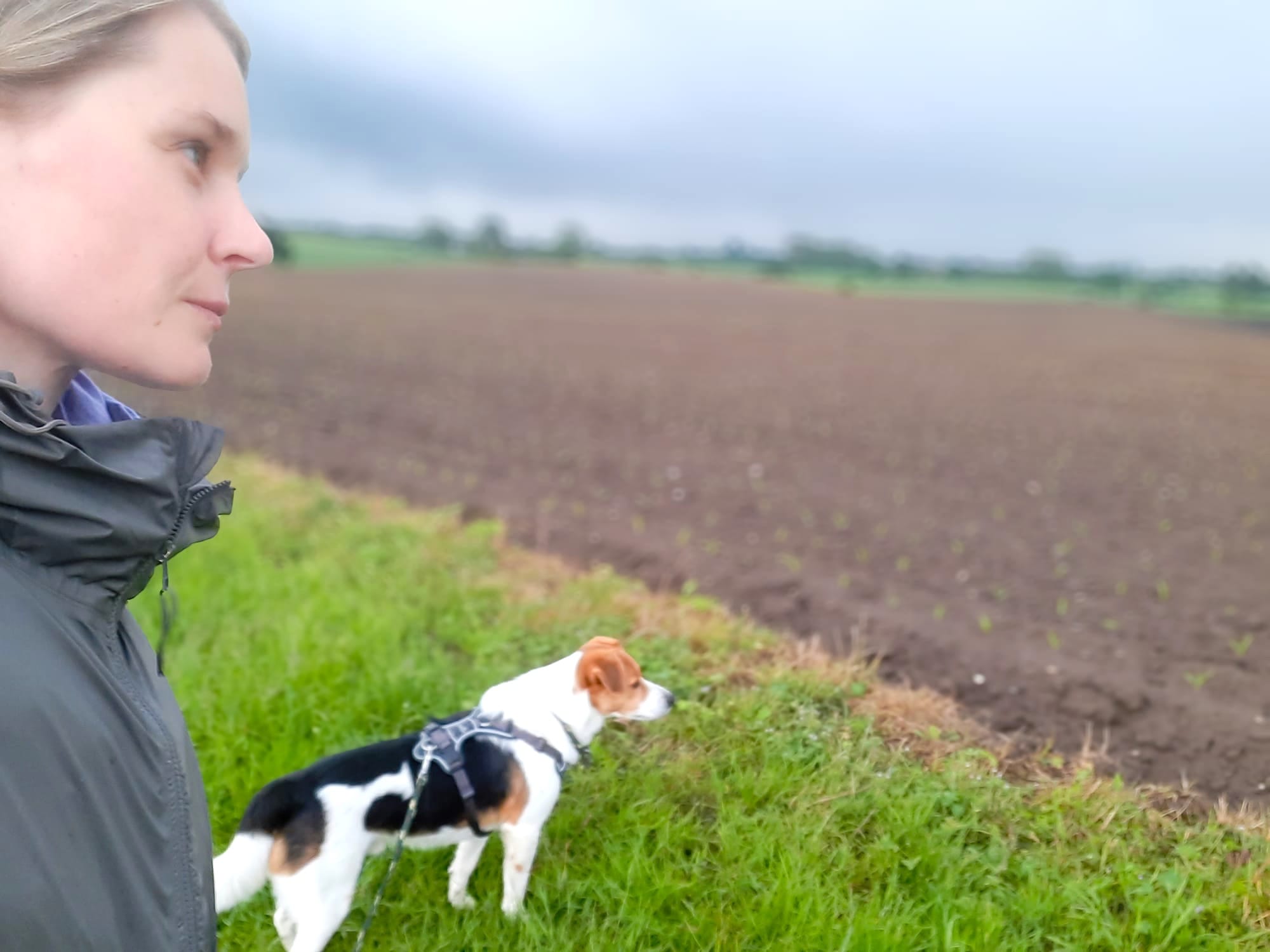Stories of War, Survival & Resilience - Workaway #2
A week on a rural farm teaches me about resilience, loss, and human connection—where rescued animals and displaced souls find refuge.
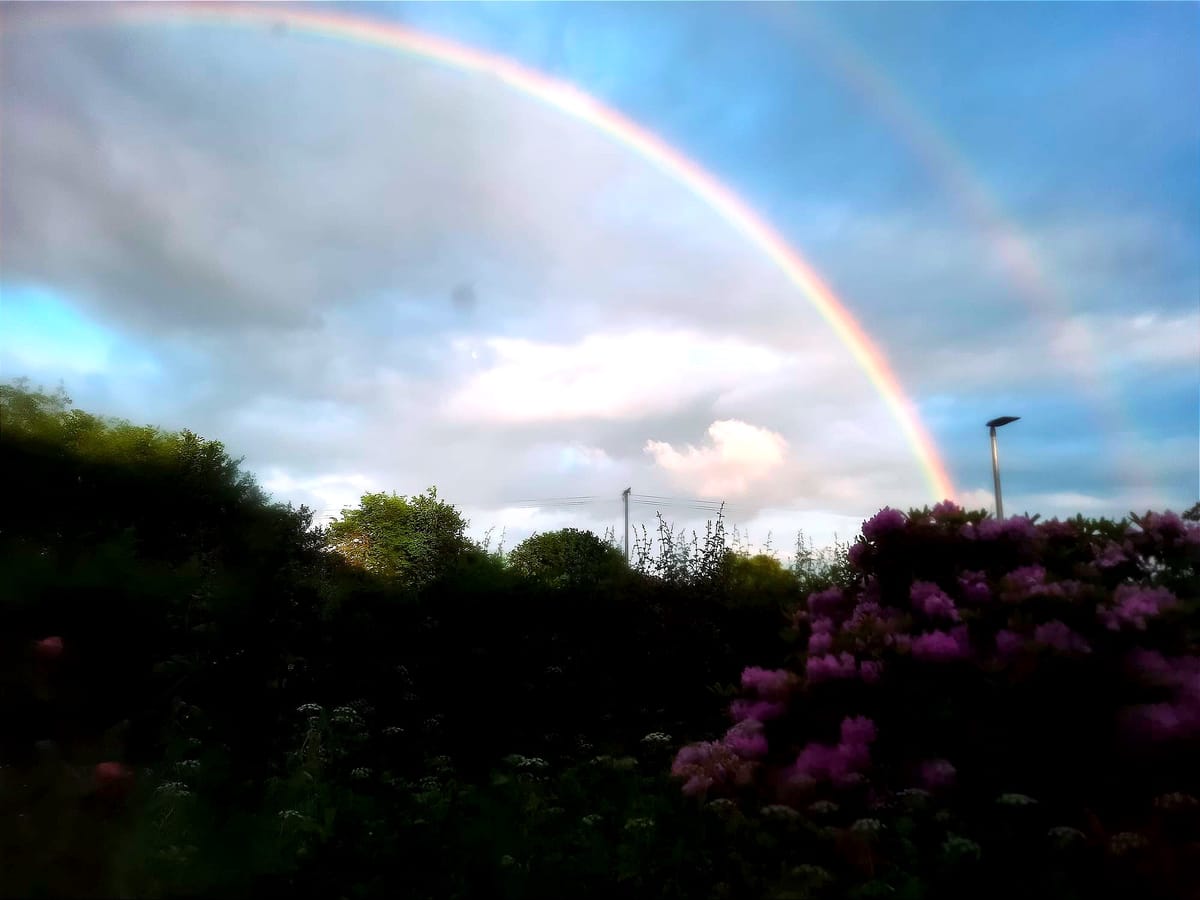
Meeting Helen: A Life of Philosophy, Survival & Strength
Through Workaway, I get a message asking if I want to help out on a farm. A farmhouse, multiple generations under one roof, animals – exactly what I am looking for. Without much research or preparation, I say yes.
When I arrive in Eckernförde, I see her from afar. Long gray hair, rummaging through her cluttered van, rearranging things. She smiles at me and hugs me as if we have known each other for years.
Beyond First Impressions: Helen’s Story of Survival & Wisdom
Classical music plays in the car. Helen talks passionately about the Wagner Festival, a dream of hers to attend one day. She tells me about Nietzsche and his conflict with Wagner over Parsifal. Then, suddenly, she recites a poem:
I stare in amazement and realize how quickly I have judged her based on her alternative appearance—an image that does not match reality at all. She has studied philosophy, is learning Greek, has lived on the streets in her youth, and financed her studies herself—working as a taxi driver and taking night shifts in bars. No one ever helped me, she says.
For the past ten years, she has cared for her husband, who had cancer. They were in the prime of their relationship—then, from one day to the next, everything changed. His death was just two years ago.
"How do you cope with something like that?" I ask. "You cope, or you die," she replies.
I think about my own worries, my own pain, which suddenly seem insignificant. If she can keep going—what right do I have to complain?
My thoughts drift to Lucas. It feels as if I have lost a family member, as if I am just waiting, keeping still, until one day I return. He has hurt me so much, and yet, I feel guilty for leaving, thinking I am overreacting.
At that moment, a strong smell fills the car. I snap back into the present. Helen glances into the back, where her three dogs are resting. She takes a deep breath and pulls over. One of the older dogs has not been able to hold it in for the long drive. We clean the car. But despite hygiene spray and open windows, the smell lingers stubbornly in the air.
War, Loss & Survival: Meeting Nikolai, a Ukrainian Refugee
Helen tells me about an old man she recently saw sitting on a bench, crying. She approached him, wanting to help—but he only spoke Russian. She asks me to translate for her if we see him again.
Shortly after, we actually spot him in the distance and stop to speak to him. His name is Nikolai, a war refugee from Ukraine.
His daughter, Galina—who is about my age—joins us, skeptical of the two strangers who approached them on the street and invited them to dinner. We don’t exchange phone numbers. Like in the pre-smartphone era, we simply describe where we live and agree on a day to meet.
Inside Helen’s Farm: A Home for Lost Souls & Forgotten Things
Helen’s farm feels like a theater prop room. Everywhere, objects seem to have remained untouched for a hundred years. A thick layer of dust covers the century-old piano. The old dogs shed hair relentlessly.
The first thing I do is grab the vacuum and clean my room of the clumps of fur. I slip into my house slippers, grateful that I brought them. At first, I hesitate to sit anywhere. But humans adapt to almost anything.
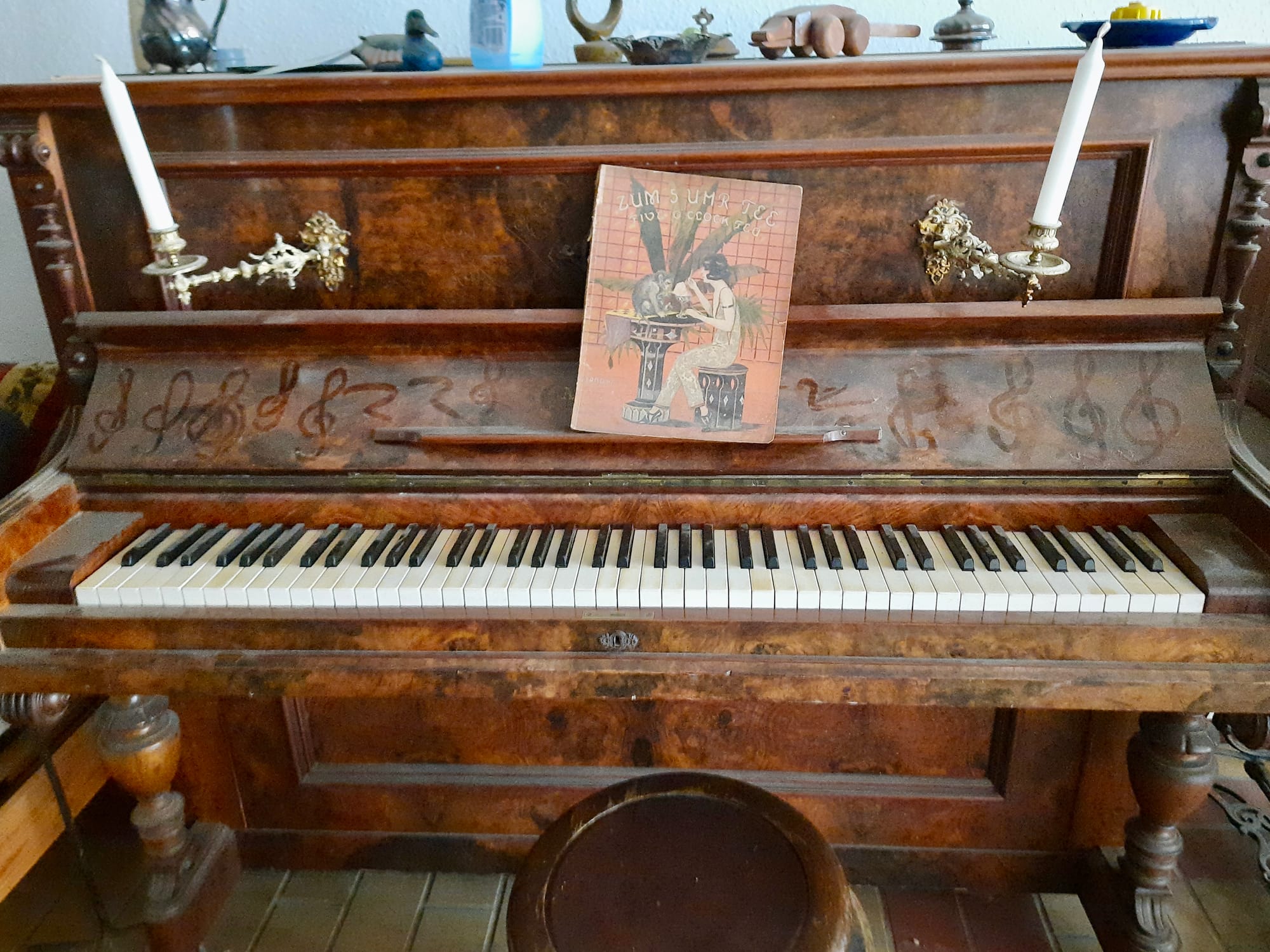
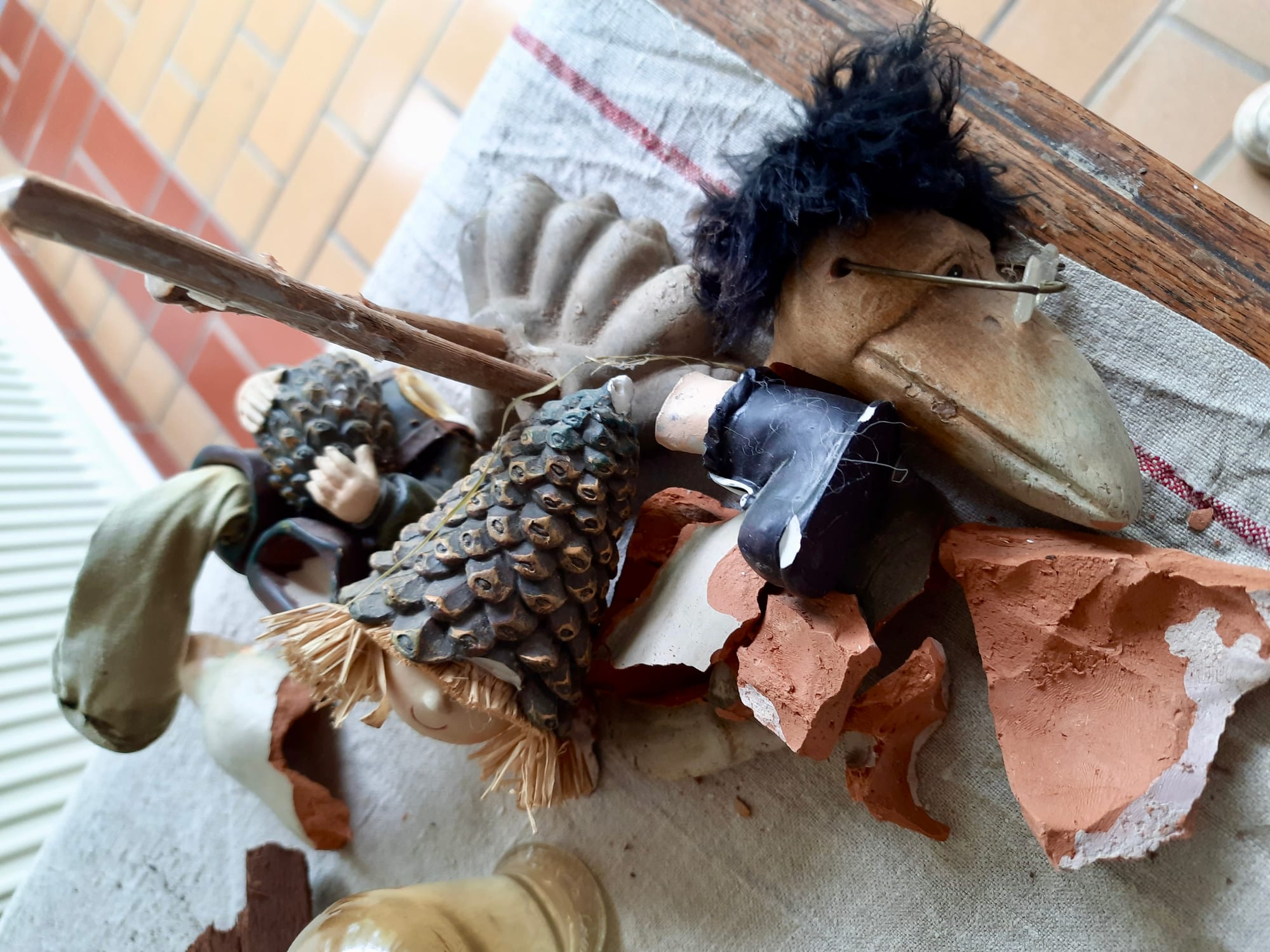
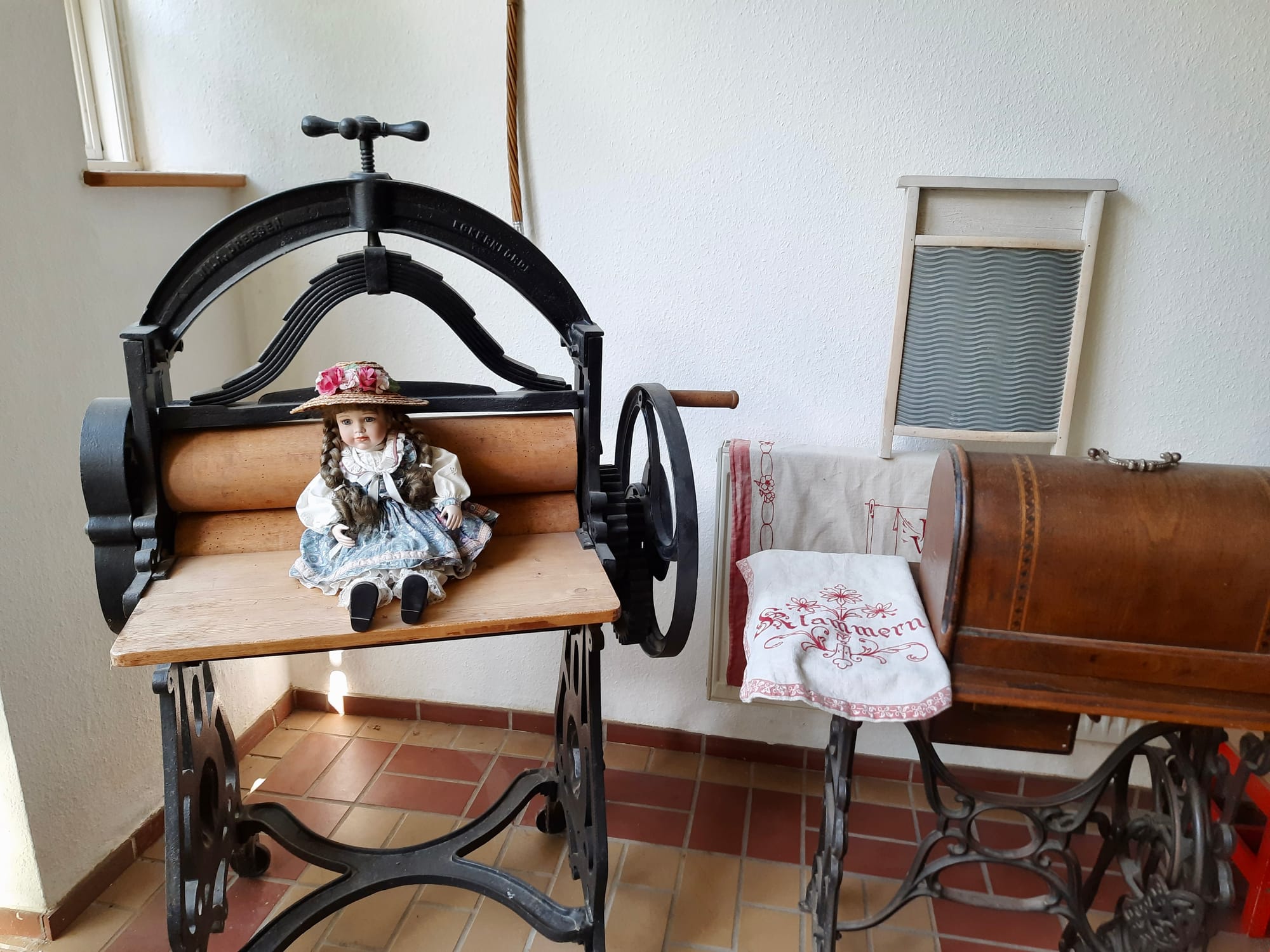
House like a museum. Helen's home
Saving Animals, Healing Souls: Life on a Rural Farm
Alongside the chickens, three elderly dogs and a cat call the farm home. Helens has a huge heart for animals. "I trust animals more than people," she says. I smile—I have said the same thing many times myself.
Many of the animals she has taken in came from terrible conditions. But with her, they have found a loving home. "I had three sailors," she says. "All of them are gone." Now, she has three dogs, and she is determined to make their final years as beautiful as possible.
She barely has any money. Almost everything she earns goes toward her animals. Some days, she lives on just five euros. She plans every car trip carefully because every driven kilometer costs money. Just yesterday, she rescued a baby bird and brought it to a wildlife center—the trip alone ate up more than half of her monthly budget.
And yet, she insists on treating me to a fish sandwich. When I try to pay, she shakes her head. "I’m inviting you." Then, out of the corner of my eye, I see her slip a few coins into the Red Cross donation box.
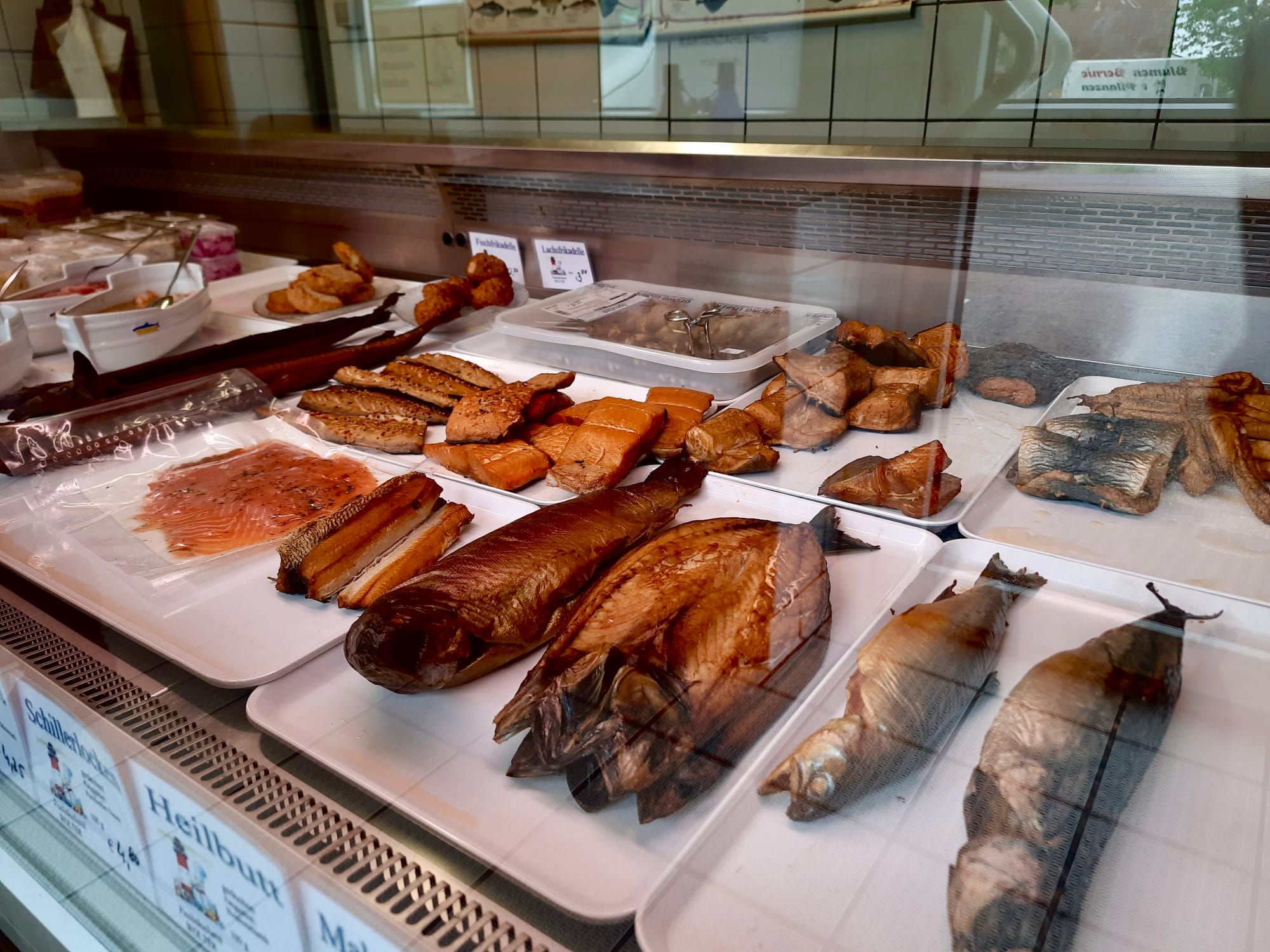
Sustainable Farm Travel: The Hidden World of 'Landvergnügen'
Lots of farms in Germany participate in a program called Landvergnügen, which allows travelers with cars or camper vans to stay for one night free of charge—as long as they buy some of the farm’s products.
Many of these farms are not officially certified organic, as they can’t meet all the bureaucratic requirements. Yet, in reality, they often operate more sustainably and treat their animals better than certified organic farms.
Campers are allowed to stay for just one night, no longer. This rule ensures that no one occupies the space for too long—so anyone can show up spontaneously.
For one of these guests, Helen prepares a meal—she buys the meat and vegetables from another farm, proudly supporting their produce.
That evening, Klaus arrives in his camper. We are served tomato soup with toasted bread and a matching schnapps. It tastes delicious. We laugh a lot and talk about cycling. Klaus tells us how he rode the historic Rallarvegen route—80 kilometers through Norway.
The idea excites me, stirring a longing to embark on such a journey myself—until I picture spending weeks in the saddle. I already know I wouldn’t last, and then I’d be stranded somewhere in the middle of nowhere in Norway.
The next morning, Klaus fixes my bicycle, which has a broken gear shifter, before heading off on his way.
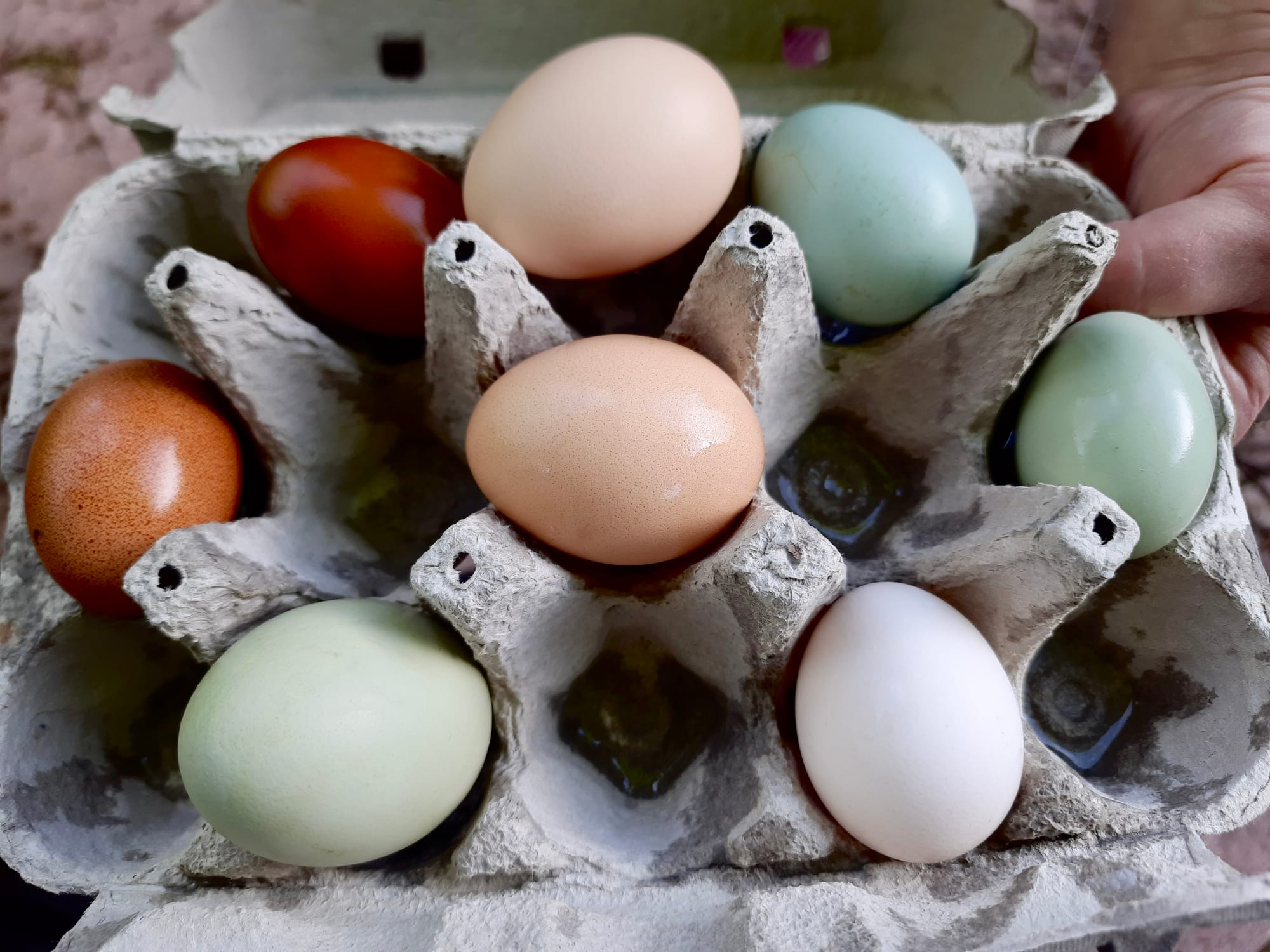
Healing Through Gardening: Pulling Weeds, Releasing Pain
I spend my days pulling weeds in the garden, imagining that with every plant I remove, I am also uprooting the weeds that have taken root in my soul over the years—setting myself free.
When there is no distraction, pain surfaces. Thoughts of him. Wondering how he feels. I know I don’t want to go back, that I can’t go back. But the longing for the feeling of home I had with him sometimes feels unbearable.
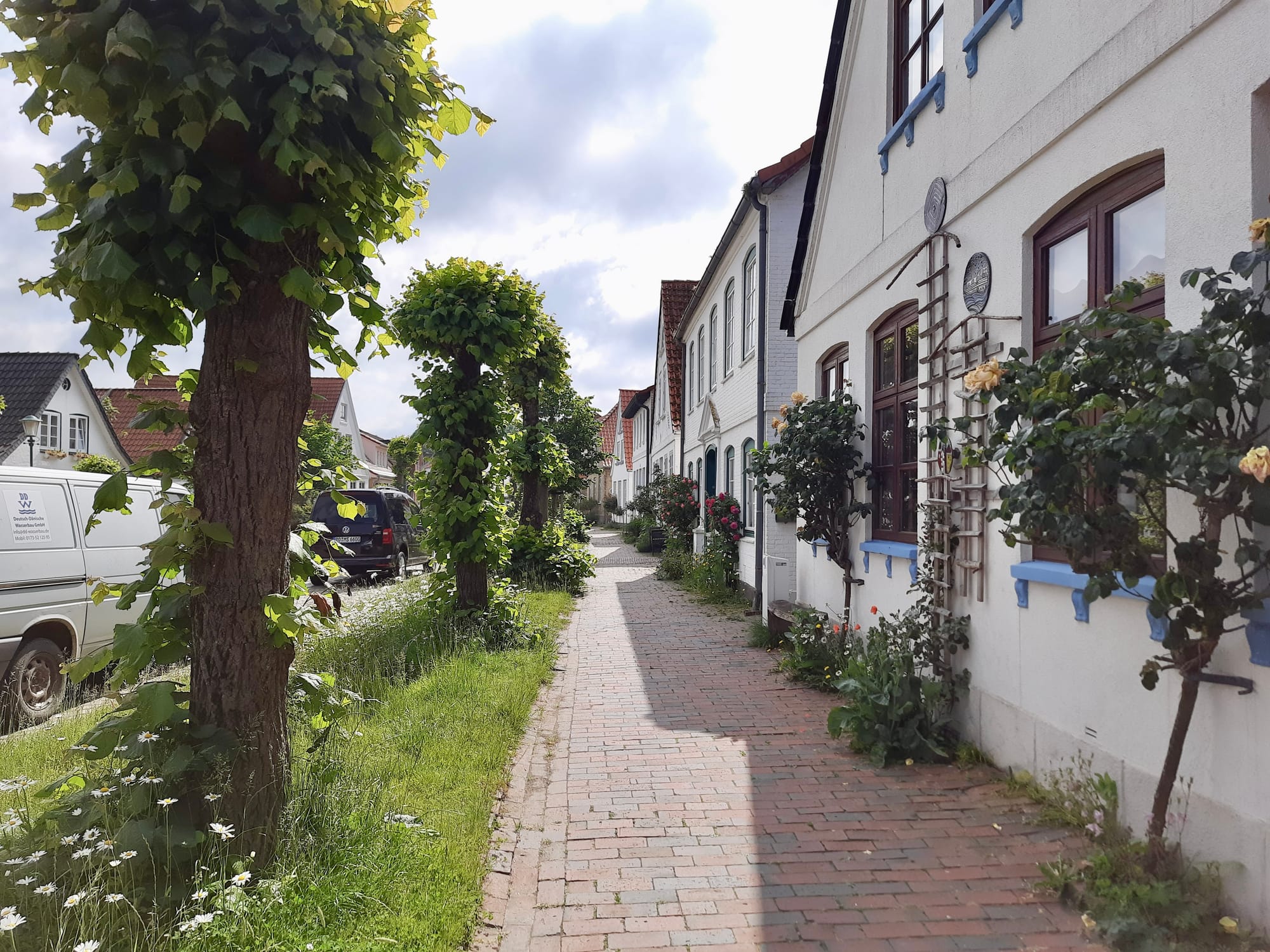
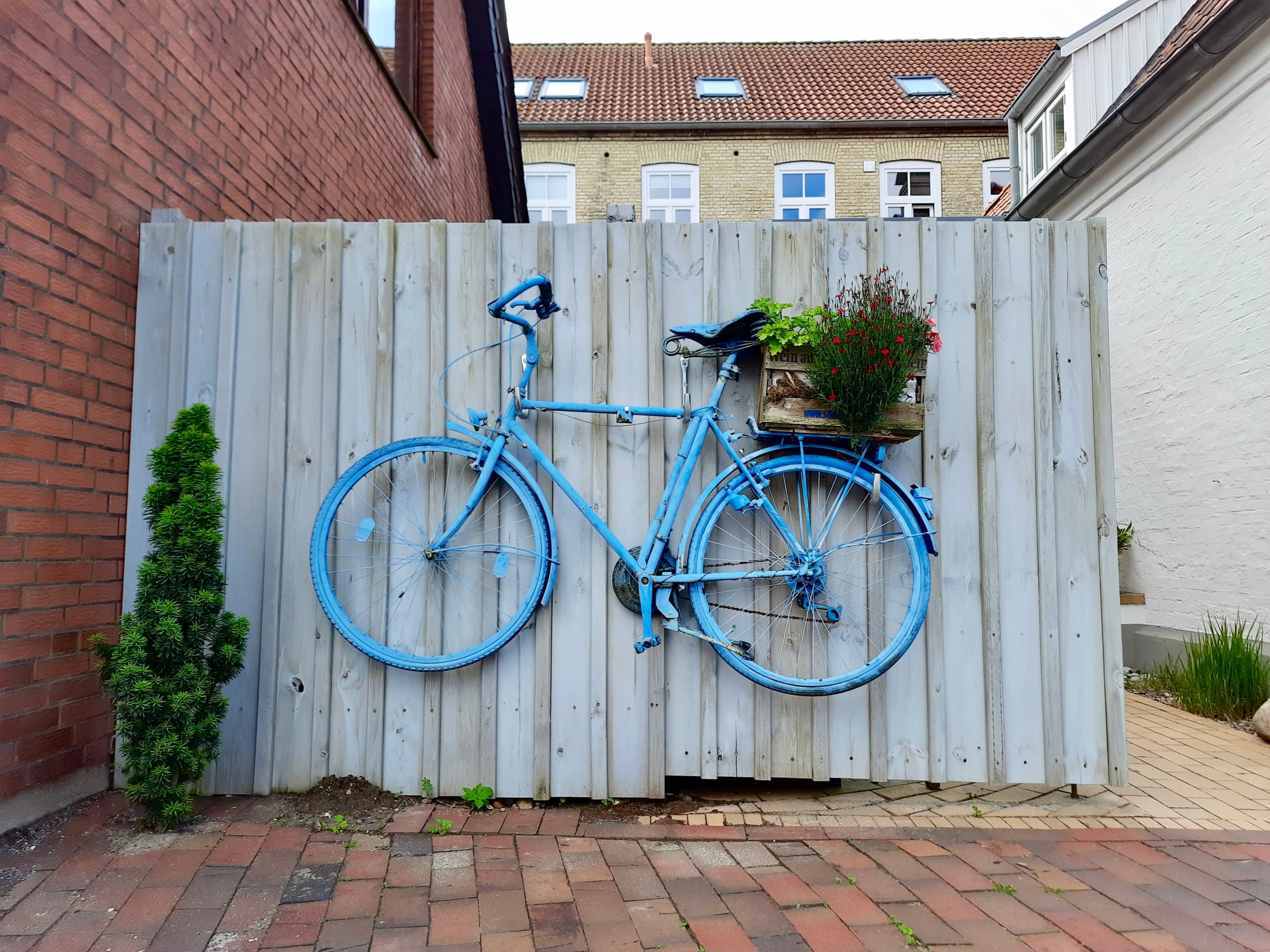
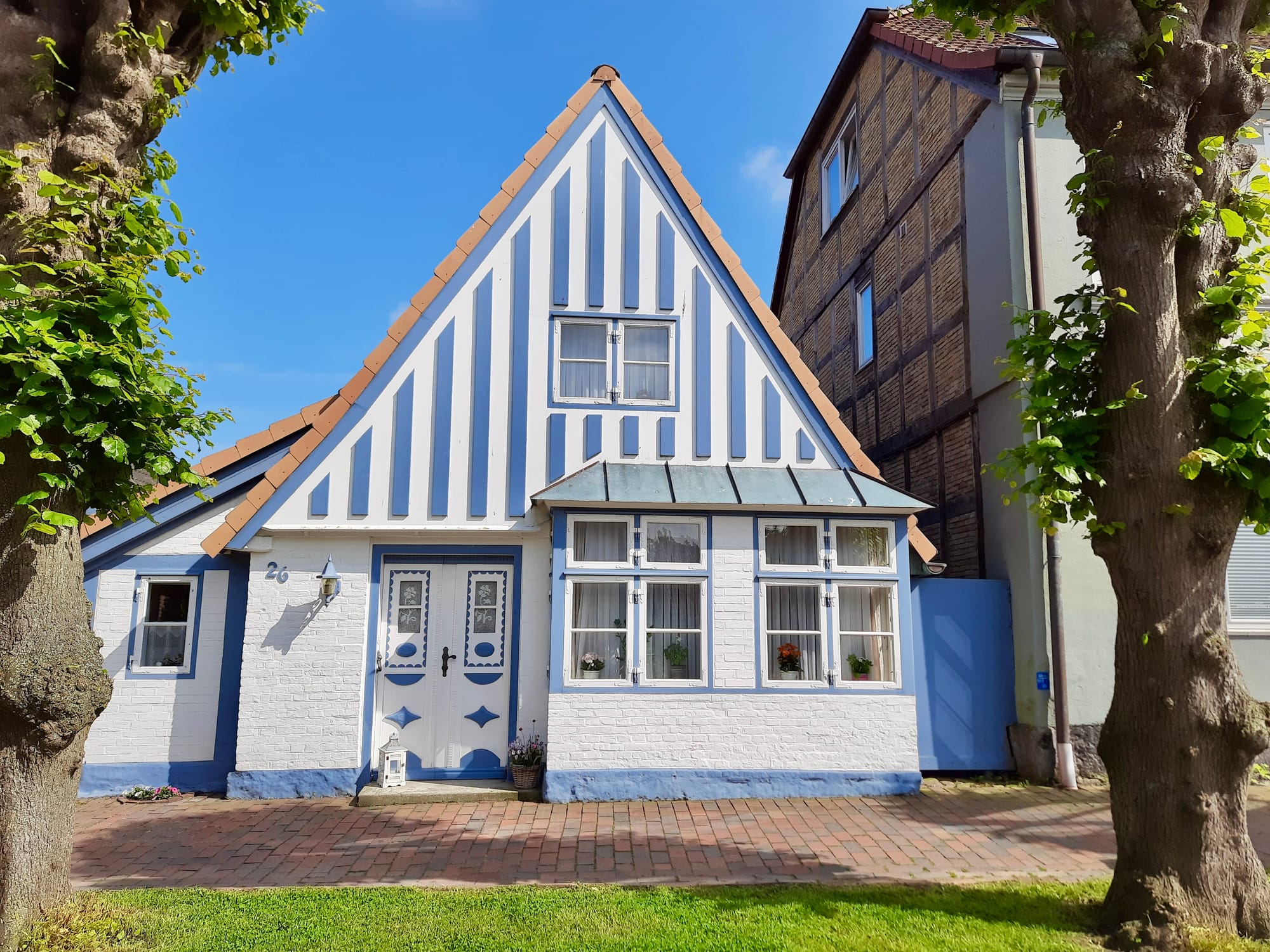
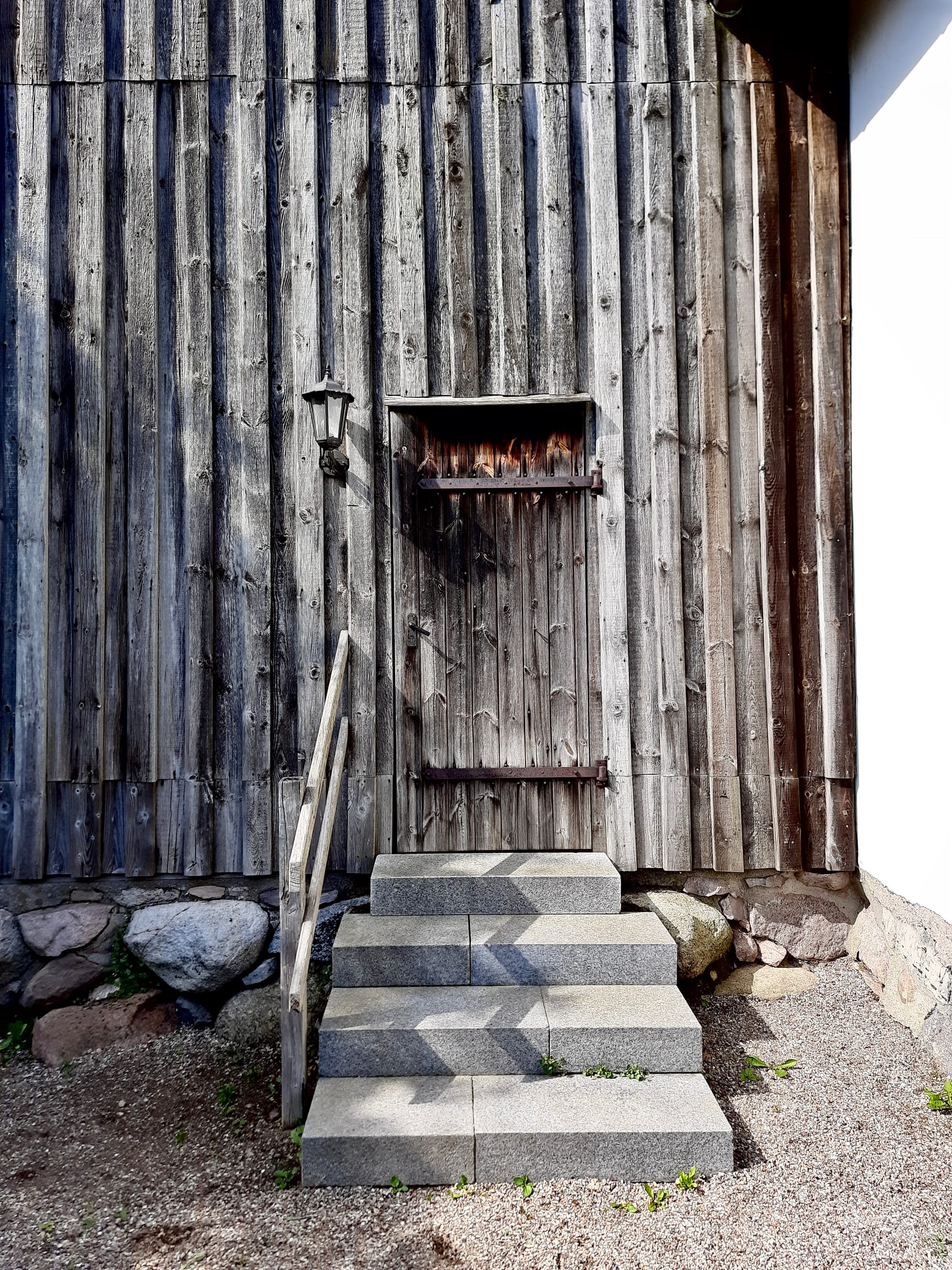
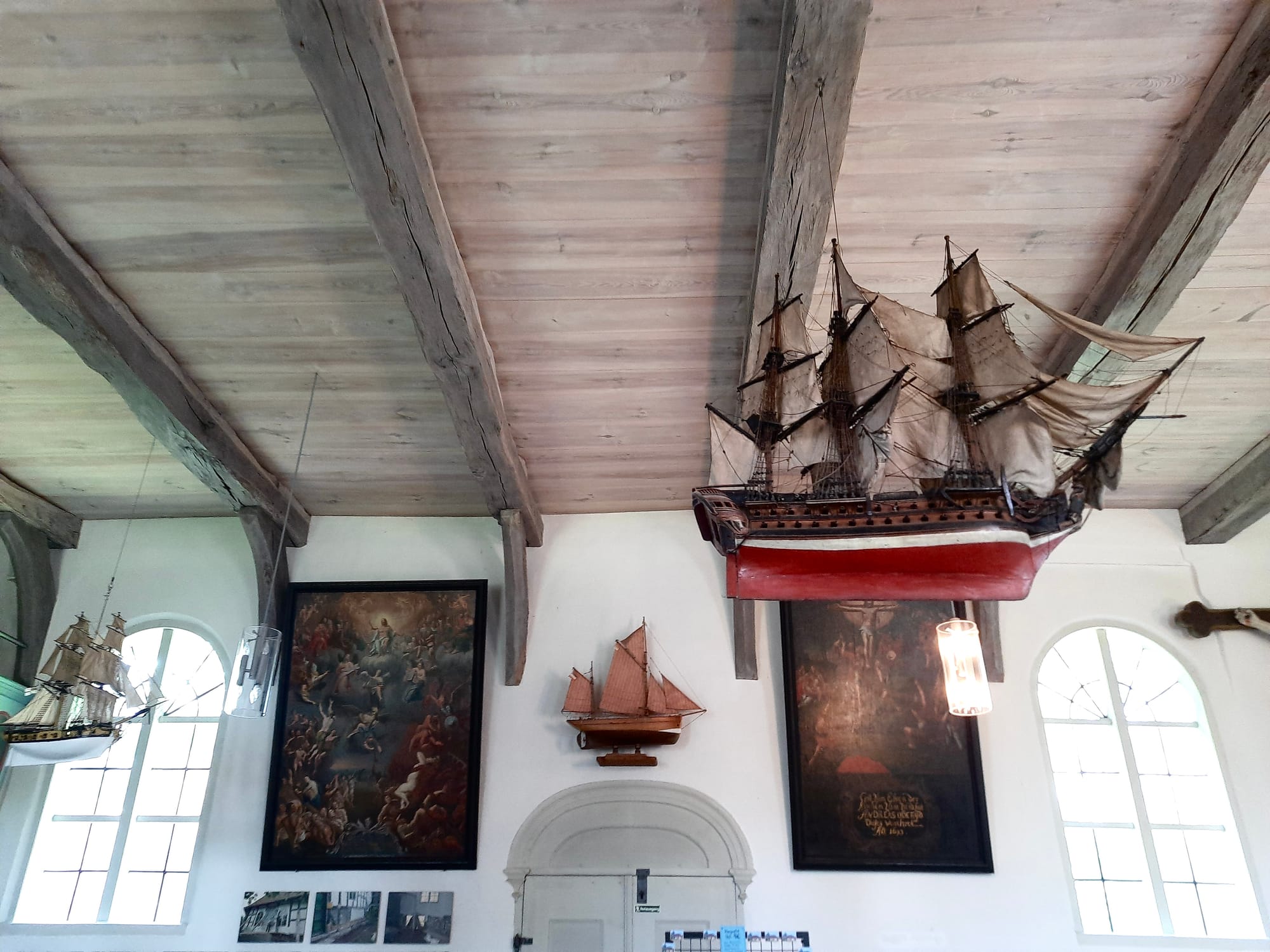
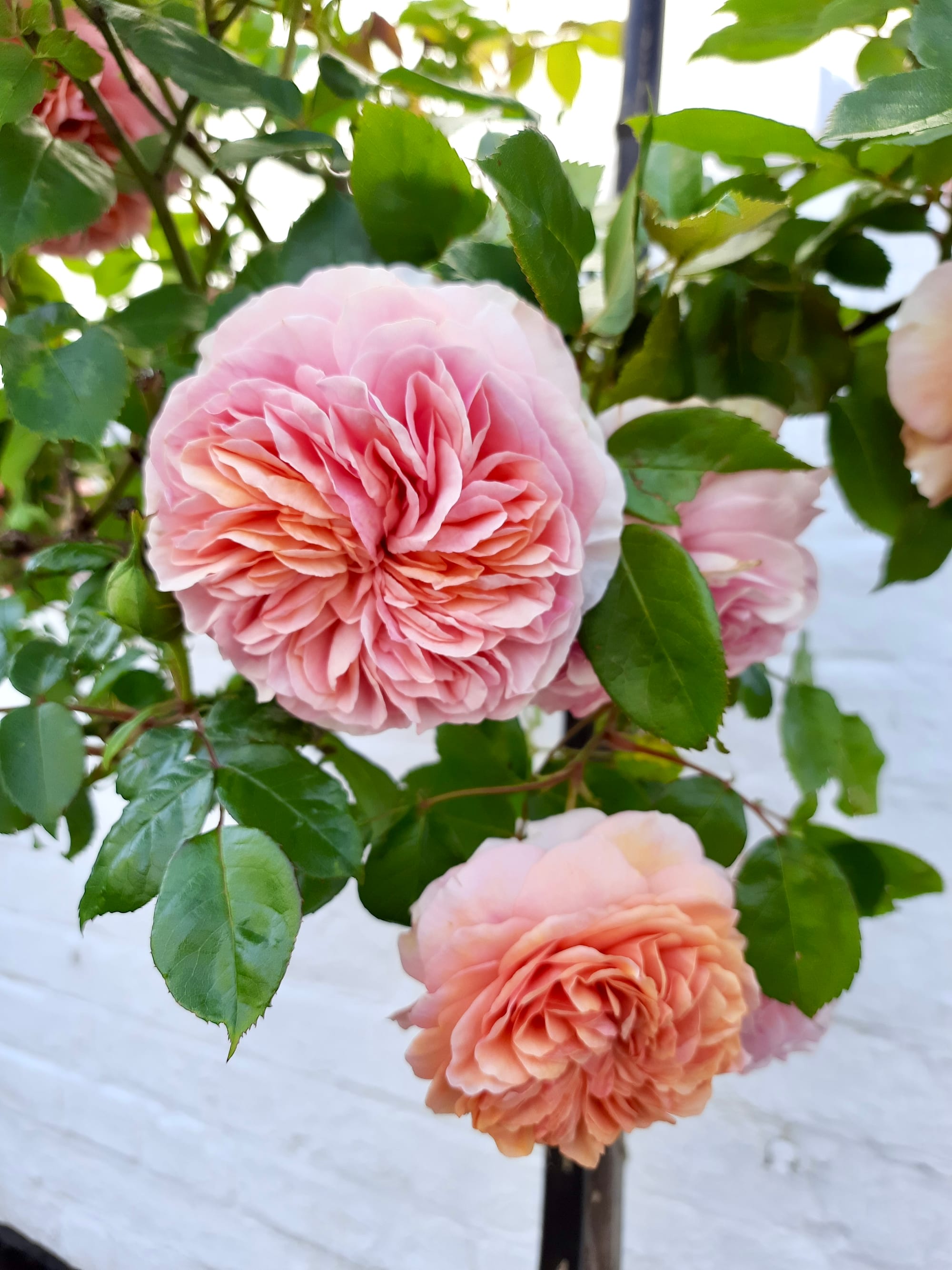
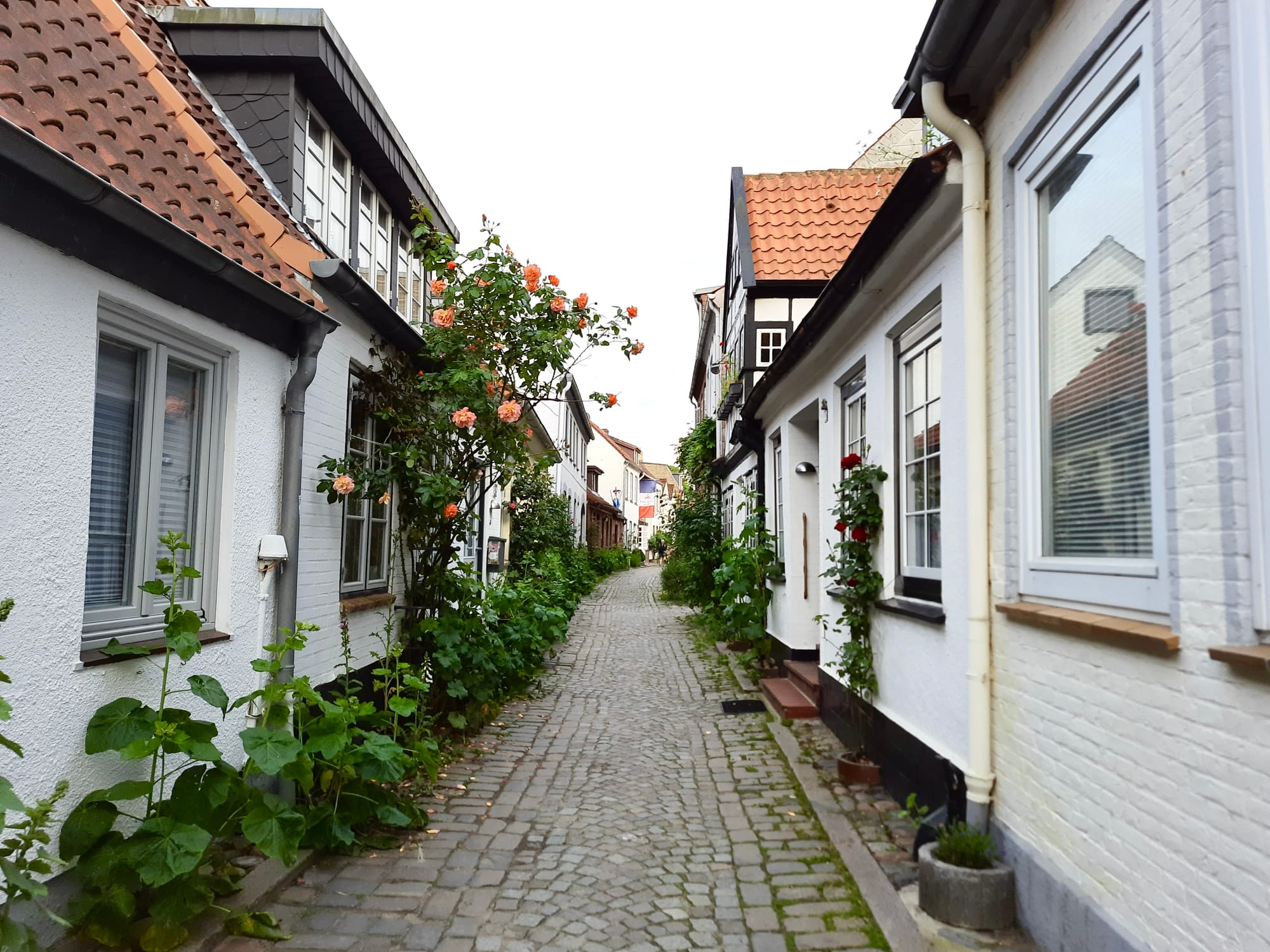
Arnis - a charming little town with only 260 inhabitants, nestled by the sea.
From Belarus to Ukraine: A Refugee’s Journey Through War
At Helen’s request, I cook Borscht. As the agreed-upon time approaches, we keep glancing out the window, waiting for our Ukrainian guests.
Nikolai and Galina do arrive. But Nikolai is tense, wary. He refuses to eat. I imagine he is afraid we might poison him. Two strangers had approached him on the street, inviting him to dinner—his skepticism is understandable.
Galina is more open, trying to ease the tension, gently urging her father to relax. But Nikolai needs time to trust us.
Helen looks disappointed. As warm and open as she is, she had likely imagined a cheerful evening filled with conversation. Instead, we sit stiffly at the table while I try to translate for both sides.
Nikolai and Galina had hoped to return to Kharkiv soon—but then the bombs started falling on the city.
I think of my own father, who lives in Kharkiv. I haven’t spoken to him in ten years. Is he still alive? I don’t have an address. No phone number. No way to contact him.
Nikolai was born in 1933 in Belarus. As a child, he watched his village burn to the ground. All the residents were rounded up and taken to a field—to be executed. But the general who gave the order took pity. Instead of shooting the people, he instructed his soldiers to fire into the air.
The villagers fled. The general was later hanged for his act of mercy.
Nikolai survived. But his family was displaced—first from Belarus, then to Chernobyl, and when the disaster struck, to Ukraine. Then came the war.
How much can a person endure in one lifetime? Constant displacement. Loss. War. Now, at over 80 years old, he sits on a bench in a foreign land, weeping.
Because all he wants is to go home.
Lessons from a Week on a Farm: Pain, Resilience & Humanity
- Countryside Wisdom #3: Living in the countryside means drop the beautiful clothing. Everything gets dirty anyways.
- Every person carries a story—we should not judge at first glance. There is beauty and pain in all of us.
- Pain knows no hierarchy. It simply exists, no matter how big or small it seems from the outside. And it deserves space.
If you are interested in more Workaway stories, check out my earlier post from Schleswig Holstein, Workaway #1.
Be well,
Vaselisa
